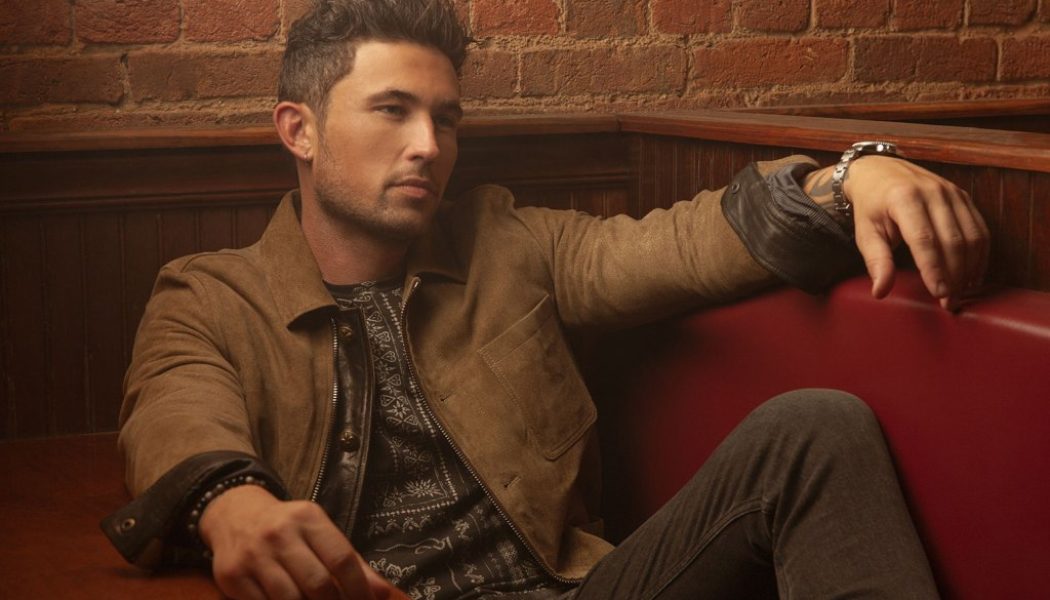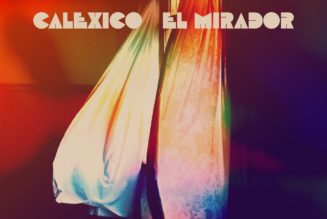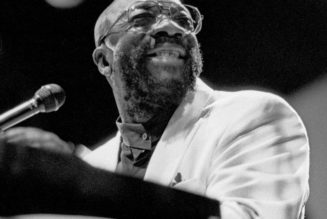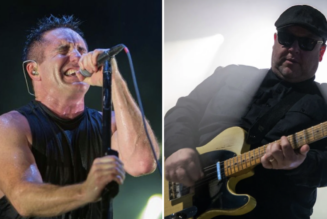
When the video for Michael Ray’s “Holy Water” debuts March 16, some of the footage will take viewers to the Cassia Baptist Church — a little white house of worship in Eustis, Fla., that the singer attended three times a week during his youth.
The preacher’s goal on many a Sunday is to define the line between right and wrong, though in practice, it’s not always so easy. That gray area in between is fertile ground for drama, and that’s a big reason that Ray recorded “Holy Water” in the first place.
“That’s what I love about the story,” he says. “It’s like a movie in your ears.”
A short movie, though: The typical film lasts around two hours, while the action in “Holy Water” takes place in a scant three-and-a-half minutes, exploring a man of the cloth living a double life. He’s either a hero with a dark secret or a criminal attempting to pay penance, though Ray sees him as sympathetic either way. “I think he’s a good guy that’s running some moonshine and doing some dark stuff, but paying it back,” he suggests.
Figuring out the minister was a puzzle even for the song’s four writers — Ashley Gorley (“You Should Probably Leave,” “Sand in My Boots”), Ben Johnson (“Beers on Me,” “One of Them Girls”), Hunter Phelps (“Thinking ’Bout You,” “Cold Beer Calling My Name”) and HARDY (“Come Back As a Country Boy,” “Give Heaven Some Hell”) — at the end of an informal two-day camp at Gorley’s Nashville-area home on June 10, 2020. They had already penned several tracks and wanted to challenge themselves in their final effort with an old-fashioned story song.
The most enduring story songs often revolve around right and wrong — as in The Charlie Daniels Band’s “The Legend of Wooley Swamp,” Reba McEntire’s “The Night the Lights Went Out in Georgia,” Blake Shelton’s “Ol’ Red” or Garth Brooks’ “The Thunder Rolls,” to name a few.
Earlier in the day, the guys had gone kayaking on a nearby river, and that led obliquely to a prospective title, “Holy Water.” Gorley suggested they support that title with a reverend operating an illegal still, and that got a rise from the crew, who thought of the preacher as a Walter White/Breaking Bad sort of character: an unlikely participant in a contraband ring. “It just sounded like the most preposterous mix of ingredients to start a song ever,” Johnson says with a laugh, “but it was honestly one of the most fun songs I’ve ever been a part of.”
Johnson had developed a swampy acoustic guitar riff, using the instrument’s lower range in a minor scale, and it definitely fit the mood. Not knowing where the plot might lead, they wrote verse one first, introducing a Mississippi church with a preacher shaking hands at the front door with members of the congregation. “With these kind of songs, you pretty much have to write them in order,” explains HARDY. “I feel like an idea might come out — like in the bridge, ‘Let’s kill a guy,’ or whatever it is — but for the most part, story songs are best if you write ’em in order.”
They stuffed that first verse with internal rhymes — “standup man, shakin’ hands” and “loved his congregation, but he ran an operation” — that set a standard for the day’s work. They would need to equal that level of poetry throughout the rest of “Holy Water.”
“That’s freaking terrifying,” Phelps says. “There’s nothing scarier than writing the first verse of a song, or the first line of a song, that has three inner rhymes in it. Then you have to do inner rhymes the whole time, or it’s not going to be as cool as the first line.”
[embedded content]
After they established the preacher’s bootlegging side hustle, it naturally followed that he would want to benefit from all the extra money he was making. HARDY suggested that the pastor buy a pricey Lincoln Continental at the start of verse two, and that moment sets the song’s tension in motion. “In Breaking Bad, he buys a new car that’s out of his means, and that’s when people start catching on to him,” notes Phelps. “So whenever he bought the Lincoln in the song is when the deacons kind of picked up on, like, ‘How the heck’s he got this new Lincoln?’ ”
At the end of that stanza, they finally introduced the chorus: a high-powered anthemic section that takes a bird’s eye view of the Southeastern moonshine business, encased in a singalong, descending melody — or, as Gorley calls it, a “yellody.” “That’s when it’s got a melody, but it’s got a little power yell to it,” he explains. “It’s any chorus that’s kind of half screaming, half singing.”
By the end of verse three, the parking lot has two more Lincolns, and before the end of verse four, the church gets new stained-glass windows and a new set of pews, too. Those economic developments make the break between good and bad even more gray. “What makes the song so intriguing is you’re not really sure what his motives are,” Johnson says. “He’s putting the money back into the church, and so I think that makes him almost a redneck vigilante.”
Adding to the song’s intrigue, they wrapped “Holy Water” with a reference to a Biblical passage, John 2: 1-11. It amounts to a homework assignment, or a treasure hunt, for listeners who want to fully understand it. “If you care about it, if you really want to know, go look it up,” insists HARDY.
Johnson built the demo as the writing session progressed, and HARDY sang lead when the song was completed. His first album was already recorded, so instead of holding “Holy Water” for himself, they pitched it elsewhere. Tape Room Music GM Blain Rhodes initially sent it to Warner Music Nashville (WMN) executive vp/creative advisor of A&R Scott Hendricks for Blake Shelton. Ultimately, it ended up in Ray’s hands. He changed the Mississippi reference to his own home state, Florida, and producer Ross Copperman (Brett Eldredge, Dierks Bentley) lowered the key, making “Holy Water” just a tad darker in tone.
“Michael has such a nice low register,” Copperman notes. “I really wanted to shine a spotlight on that.”
Drummer Fred Eltringham wrangled extra drama through the toms as they cut the song via Zoom, while guitarist Rob McNelley created a creepy effect with a buzzing background sound and a screeching solo. When it was close to finished, Copperman and Ray had Jenee Fleenor add burning fiddle at the same time that she overdubbed “Whiskey and Rain.” “Jenee’s fiddle took the song to new heights,” says Copperman.
Ray realized just how many words are in “Holy Water” when he cut the final vocal outside of a closet at the home of his road manager, Luke Reynolds. “We just set up a little makeshift studio in the front bedroom and the front closet of his house and did what we needed to do,” Ray says.
WMN sent the song to country radio via PlayMPE on Feb. 22. Its swamp sound provides stations a recording that promises to help differentiate it. “That kind of song is missing, and I think that’s really what identifies country music,” notes Gorley. “You can’t go write that song for Justin Bieber, so it definitely sets it apart, genre-wise, when those kind of songs are on the radio.”
“Collectively, everybody had the same opinion,” Ray agrees. “It’s been a long time since we’ve had something like this.”
[flexi-common-toolbar] [flexi-form class=”flexi_form_style” title=”Submit to Flexi” name=”my_form” ajax=”true”][flexi-form-tag type=”post_title” class=”fl-input” title=”Title” value=”” required=”true”][flexi-form-tag type=”category” title=”Select category”][flexi-form-tag type=”tag” title=”Insert tag”][flexi-form-tag type=”article” class=”fl-textarea” title=”Description” ][flexi-form-tag type=”file” title=”Select file” required=”true”][flexi-form-tag type=”submit” name=”submit” value=”Submit Now”] [/flexi-form]









Tagged: Country, entertainment blog, Makin' Tracks, music, music blog